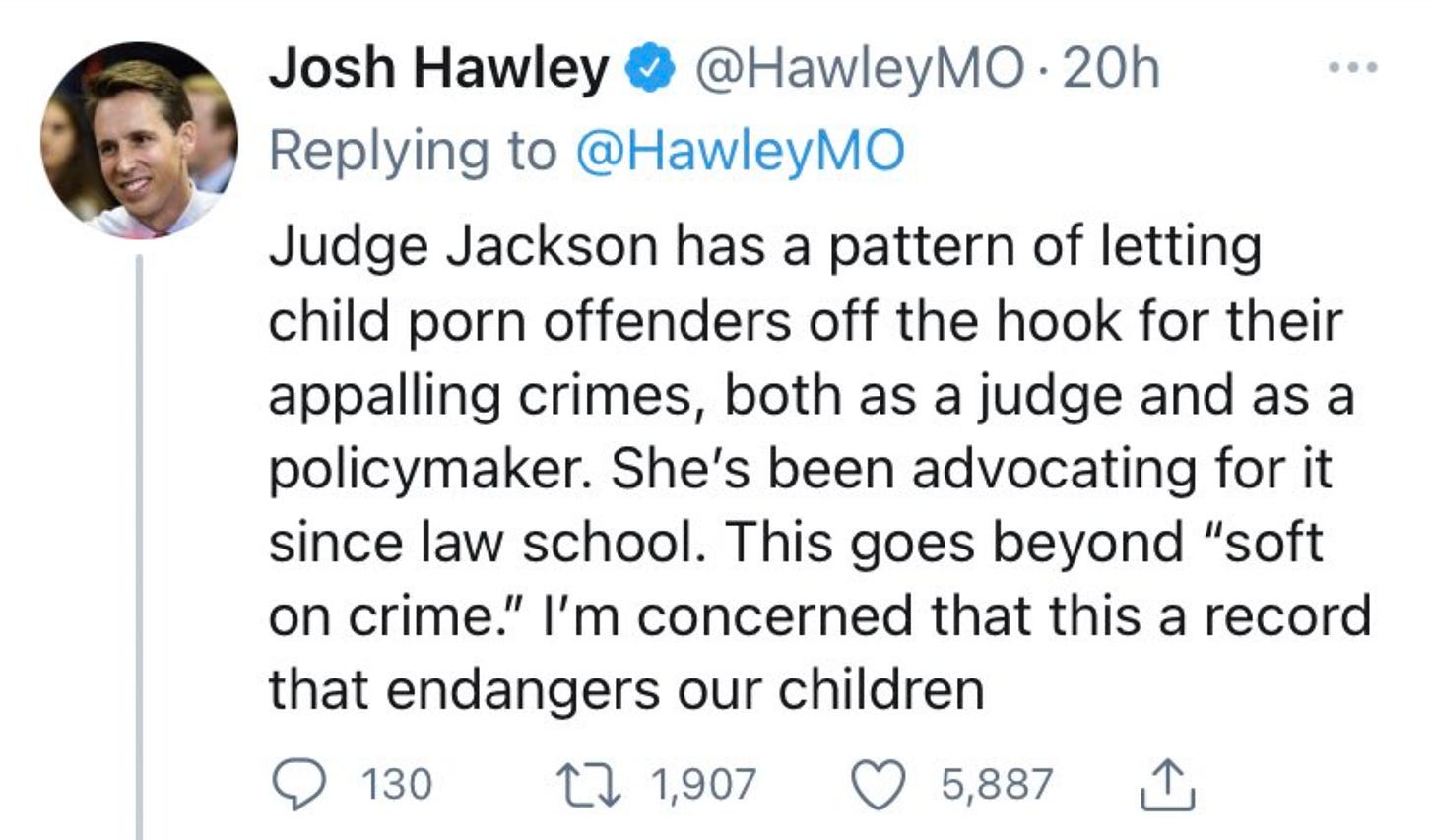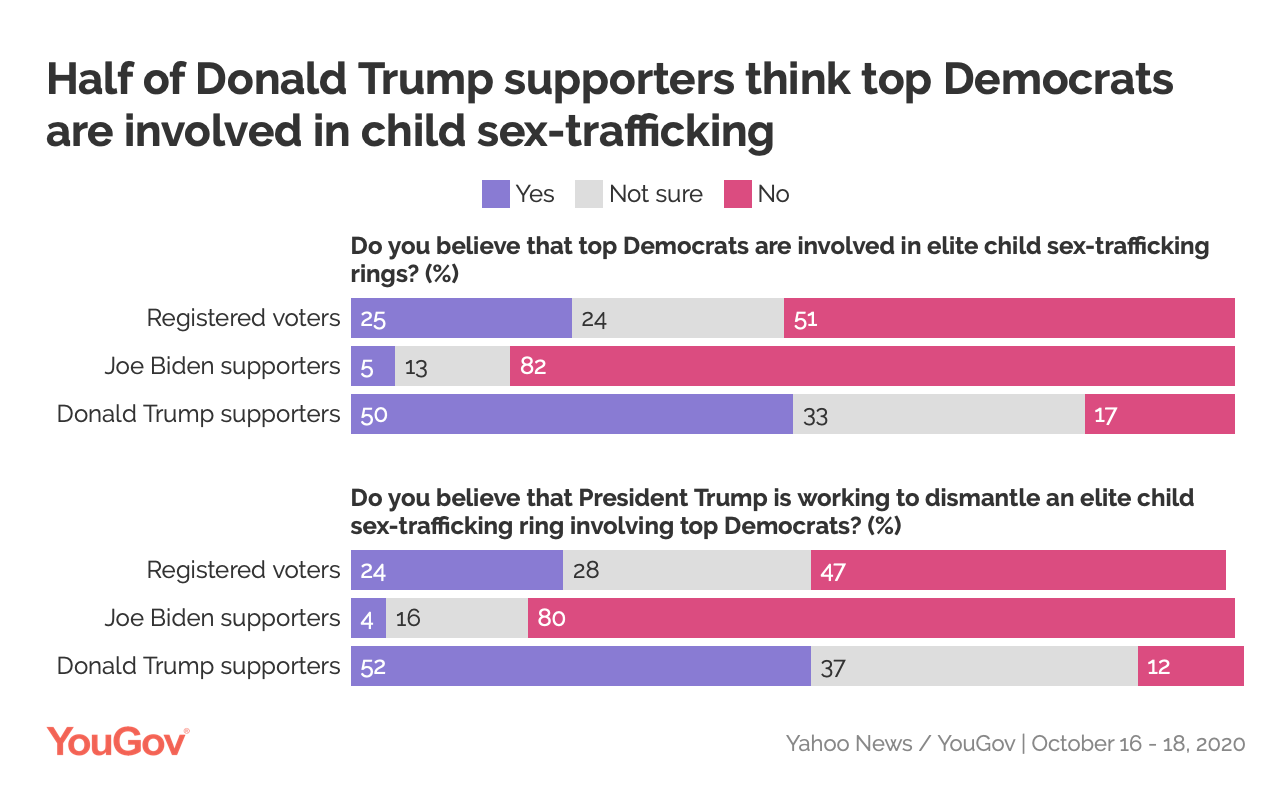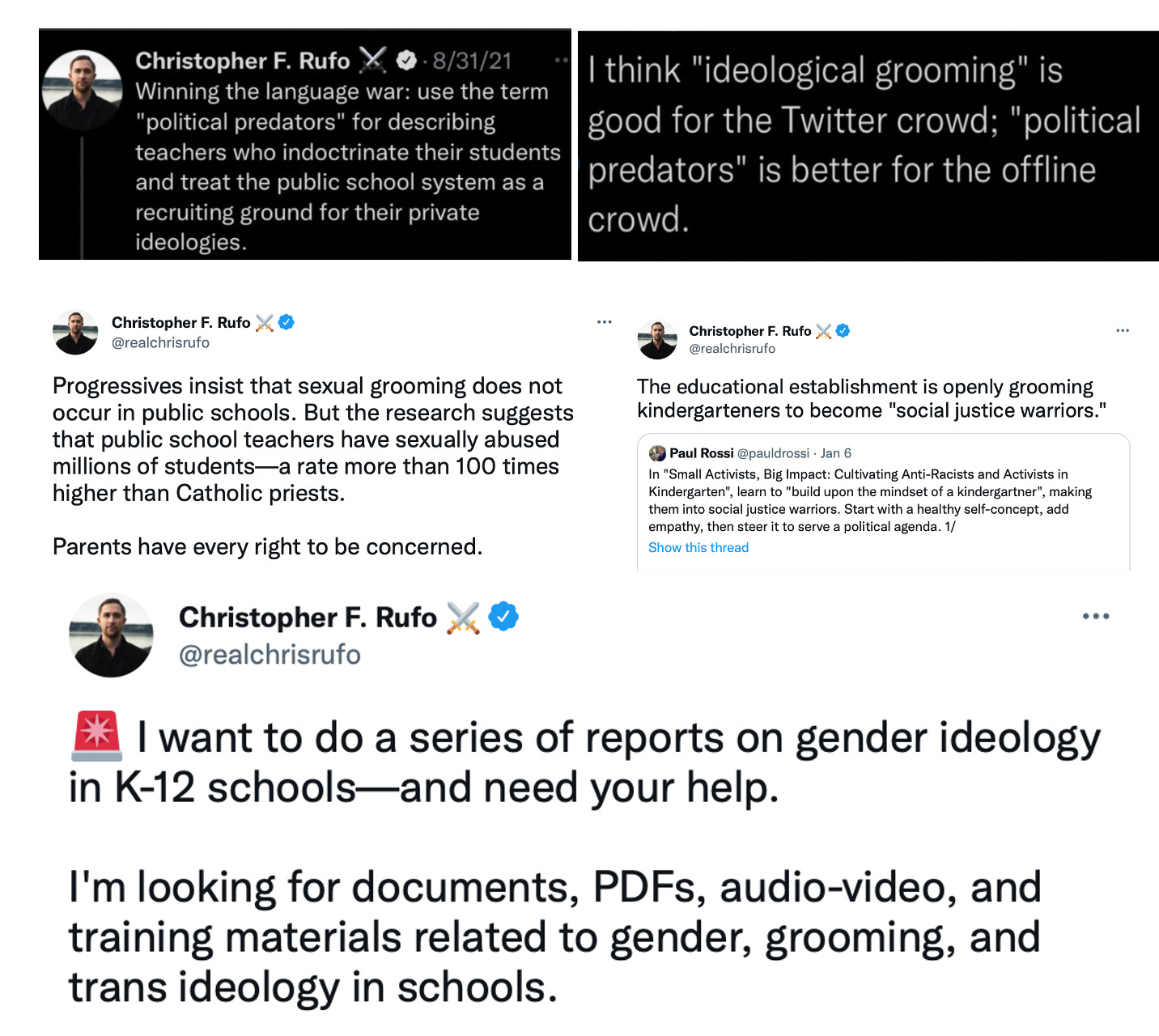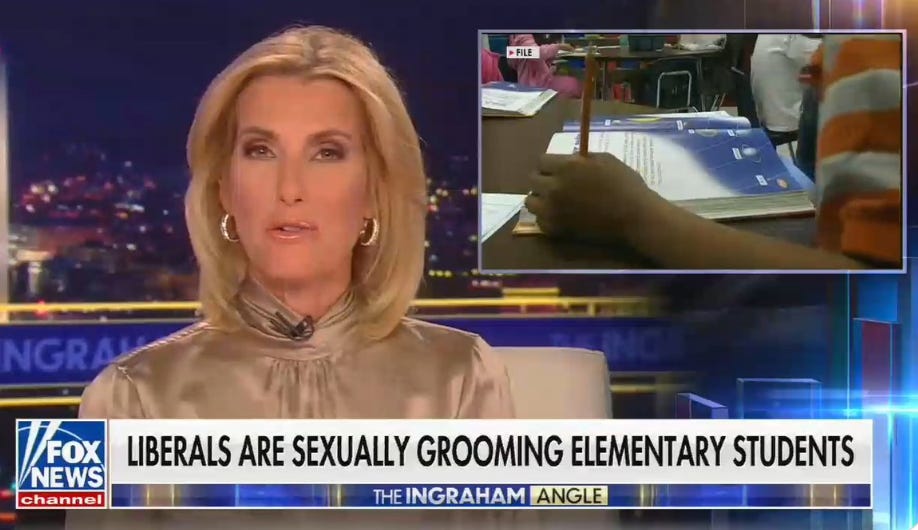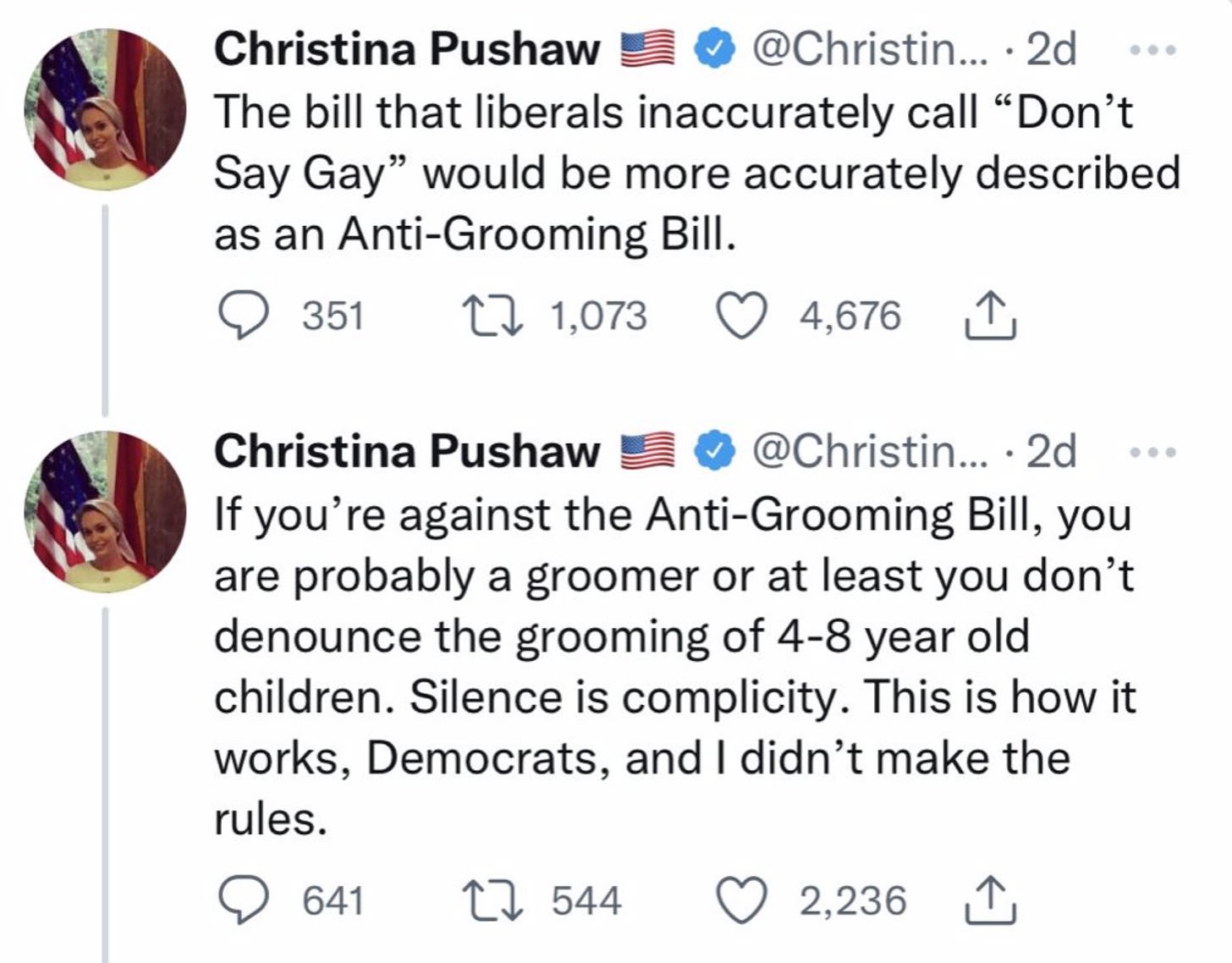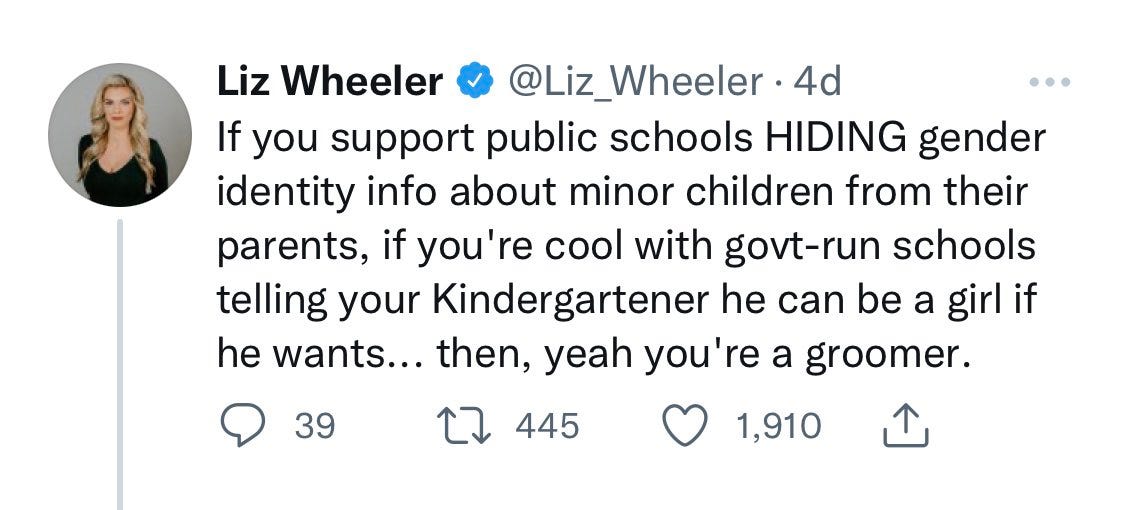The QAnoning of our political discourse
Unfounded accusations of "grooming" or child abuse are becoming the norm. Why?
Earlier this week Republican Senator Josh Hawley, wrote a widely viewed thread about President Biden’s nominees to the Supreme Court, Ketanji Brown Jackson. The central theme was that Jackson was too sympathetic to sex offenders. Factcheckers debunked the claim, noting that Jackson’s views were relatively mainstream, and that Hawley had relied on mischaracterizations while quoting her words out of context.
If Hawley’s criticisms could be so easily rebuffed, why bother with this line of attack? The answer reveals something about the decay of American political discourse in the Trump era.
Hawley sought to tie Jackson to a well-defined and increasingly common trope in American conservatism, which is that public institutions are overrun with child predators.
The point of Hawley’s attack is not to make the charges stick in any substantive way, but to create an association between Jackson and this broader trope. And in some immediate sense this worked. Simply by airing the claims, Hawley gave conservative media an excuse to run them.
Hawley does not claim that Jackson herself is engaged in any illegal acts. But he casts her as a bit player in a familiar narrative, upholding a system of mass pedophilia. Since he sits on the Senate Judiciary committee that will hold hearings on Jackson’s nomination, he will have ample opportunity to push his claims to an even wider audience.
This is a bigger problem then you think
My criticism of Hawley might sound exaggerated a little paranoid. But it is easy to underestimate how widespread this problem is for a few reasons. First, the subject matter itself is troubling. Who wants to talk about pedophilia? Second, there is a tendency to treat the people advancing these claims as clowns, not to be taken seriously. Third, we might reassure ourselves that it really is just a nut-job minority.
It’s a minority, but a sizable one, popularized by the QAnon cult. A poll taken in the run-up to the 2020 election showed that half of Trump supporters believe that top Democrats are involved in child sex-trafficking, and that Trump was using his Presidency to stop them.
Take a moment to acknowledge the sheer scale of the lunacy here.
One quarter of registered voters believe in an insane conspiracy theory for which there is no evidence, and which portrays their opponents in the worst possible terms. (The numbers vary: other polls suggest the number might be closer to 15% or that the majority of Republicans subscribe at least partly to QAnon views).
It is also a constituency that most politicians and media are reluctant to openly embrace. But just as nature abhors a vacuum, politicians hate not catering to potential supporters. In a presidential debate Trump himself said “I know nothing about QAnon” before stating “they are very strongly against pedophilia and I agree with that.” Hawley’s statements shows how the semi-respectable face of conservatism is reaching out to QAnon by incorporating it’s themes and beliefs. It is signaling with denial plausibility. And it’s not just Hawley.
Public education as a venue for QAnon appeals
The venue where we see the most vivid importation of the QAnon worldview is education. This is not surprising, because this is also the policy domain that features parents, and where conservative actors can best leverage threats to kids. They have, for example, been remarkably successful in suggesting that kids are being forced to renounce their white identity via Critical Race Theory forums in public schools. Doesn’t matter if its true, as long as it works.
The same actors who constructed the anti-CRT panic are actively constructing a new moral panic that that children are under some sort of attack. They have incorporated language like “grooming” or “predators” — language intended to trigger images of child sexual abuse.
Chris Rufo, the principal of the anti-CRT moral panic is explicit about the use and purpose of such language.
Two things are notable here. First, the use of such terminology as a deliberate political strategy. Second, that this language is largely not about sexual abuse of children. Rufo is much more likely to describe “grooming” in the context of kids being exposed to ideas he dislikes rather than actual sexual abuse. In other words, sharing certain political beliefs — usually centered around recognizing the status of historically marginalized groups — are treated as interchangeable with child abuse, its perpetrators akin to child abusers.
Such language is especially likely to be deployed if openly LGBTQ adults interact with children.

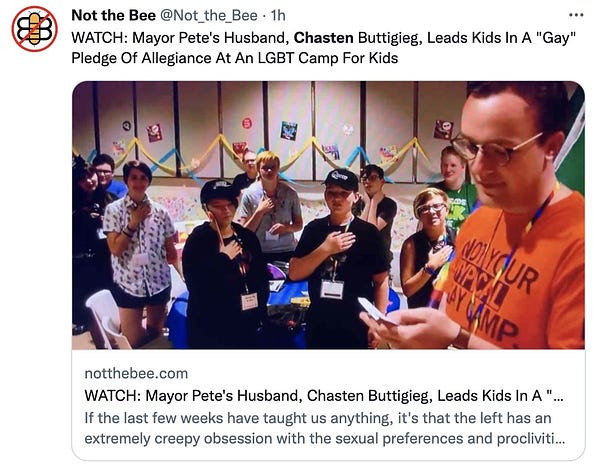
It is important to understand that “sexuality” in this context is about identity rather than sexual acts. Acknowledgment of the existence of people with different sexual orientation is treated as akin to not just grooming but “sexual grooming.” Again, notice the shift in meaning. Terms associated with child sexual abuse are deployed to cover discussion of identity.
On Fox, Laura Ingraham asked: “When did our public schools, any schools, become what are essentially grooming centers for gender identity radicals? As a mom, I think it's appalling, it's frightening, it's disgusting, it's despicable. Florida just passed a bill to keep this type of sexual brainwashing out of schools.”
The bill in question, what has become known as the Don’t Say Gay law, drew attention with a spokesperson for Governor DeSantis said that anyone opposing the bill was “probably a groomer.”
Other conservatives rushed to her defense, reiterating the same message. Anyone who opposes a law that restricts discussion about sexual identity are themselves suspect of child abuse. Again, "grooming" appears in this context means "acknowledging that LBGTQ people exist, or allowing young people to have contact with an openly LBGTQ person."
Pizzagate as the origin story
Two defenders of the Don’t Say Gay law stand out.
Posobiec and Cernovich have been doing this for years, testing the strategy of labeling their political enemies as “pedos.” The pair spread the pizzagate conspiracy that leaders in the Democratic Party ran a child sex trafficking ring out of a DC neighborhood pizza. Insane stuff, but a gunman turned up at the pizzeria looking evidence.
The gunman went to jail, but Posobiec and Cernovich kept going, accusing politicians, celebrities or members of the media of being pedophiles. Some people lost their jobs as risk-averse corporations ran for cover. If you criticized the trolls, you become subject to the same smear. For example, when comedian Vic Berger mocked Cernovich, Cernovich responded by accusing him of leading an “active pedophile ring”, which resulted in death threats for Berger.
Elements of the Pizzagate conspiracy theory morphed into QAnon, finding support on a much larger scale. The seeds Posobiec and Cernovich planted had taken hold. Rather than face any punishment, they became influencers in conservative media. In other words, their strategy worked. By consistently smearing others they became celebrated.
Of course, it is not just the US right using such tactics. QAnon followers in Brazil have targeted left-learning politicians and media figures critical of Bolsonaro as promoting pedophilia. In the hands of state media, the accusations can be very powerful indeed. The Kremlin not just accuses political opponents of being actual pedophiles but as with the American right, deploys the language of child sexual abuse even when it is not applicable. For example, Alexei Nalvany and supporters were labeled political pedophiles for encouraging young people to protest Putin’s regime.
Is there a way out of this?
People will continue to do things that are rewarded, and stop doing them when they are punished. Right now, the rewards are obvious, and the punishments are not.
What Pizzagate showed is that you can say the most vile things and you will not get canceled. Instead, you will prosper. You will be embraced. Others will adopt your tactics. Your targets will fear you. They will be on the defensive. Silenced. Maybe they are not guilty of what you claim, but as your political enemy they deserve what they get.
Someone like Hawley will never spell it out but the purpose of raising these vile smears is articulated well by Jesse Kelly.
And through such means a poison in our political culture spreads. It’s McCarthyism on steroids.
The ambiguity of the signaling allows those catering to a QAnon audience some plausible deniability, in much the way that the ambiguity around the “okay” hand sign — is it someone saying ok, or is a white supremacist signal? — makes it effective.
It is helpful for media to not just push back against actions like Hawley’s on factual grounds, but to convey the broader context of the QAnon signaling, as Ian Millheiser does here. It is helpful for progressives to understand the power of these beliefs.
But ultimately, as with other problems on the far-right, the solution must come from conservative institutions. The degree of polarization we face means that mainstream call-outs of Hawley will only bolster his credentials among the audience he is appealing to.
Republican politicians need to push back, and conservative media need to stop their nod-and-wink relationship with the QAnon audience. They have a reason to do so: anyone who empowers or goes along with conspiracy theorists who make wild accusations are themselves vulnerable to such accusations the moment they step out of line.
Unfortunately, I have more confidence that conservative media will instead continue to mainstream “grooming” as their new moral panic du jour.
If you found this post useful, please check out this and this piece about the attack on expertise in education, consider subscribing if you have not done so, and share with others!



